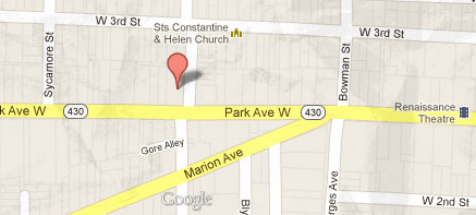Fearfully and wonderfully made. And that we are. Not by our own declaration, but our observation of God’s wonder and wondrous works (Ps 92:4-5; 104:24; 111:2; 139:14), by His own word’s declaration - His word to us.
Now, let us understand that when we are speaking of our being made by God, and that, in His image and likeness, which He declares, as His creation's crown jewel, is very good, we are not talking about mankind being “basically good” in nature. We are talking about God’s original intent for mankind, that they, we, would be for the reflection of His glory.
Now, we do still have a fading remnant of His glory, which Paul calls “God’s… invisible qualities.” (Ro 1:19-20) but, that does not make man, since the fall because of his sin, by nature, (basically) good. In fact, it is the opposite.
Romans 3:10-20
What we are alluding to is mankind’s value: an inherent value as ascribed by God. Value so inestimable, that God would pay the most exorbitant price, the blood of His Son.
John 3:16-19
Romans 3:21-26
So what is the difference between good and value? Or, even good and good?
Value (among all creation) – it is God said so - that Jesus would not only die for us, but. die for us even when we were still His enemies! (Jn 3:16; Ro 5:6-10)
Good, beautiful, that has merit: reward (1Co 3:8,14; 4:5; Eph 2:8-10; Ja 3:13,17-18) vs. able to do a good thing: without merit or reward (if to prove/gain merit, that they are acceptable, this, is, in fact, a filthy rag - Isa 64:5-9,12)
Matthew 7:7-11 “11If you, then, though you are evil, know how to give good gifts to your children, how much more will your Father in heaven give good gifts to those who ask him!”
Isaiah 64:6 “All of us have become like one who is unclean, and all our righteous acts are like filthy rags”
Sinful and unrighteous: as in our nature, enemies of God (Ro 5:1Pt 3:18) vs. Righteous: as in acceptable to God in Christ, by faith in Christ (Jn 1:3:19-21; Ro 12:1; 1Pt 2:5)
John 1:12-13 “...to all who did receive him, to those who believed in his name, he gave the right to become children of God— 13children born not of natural descent, nor of human decision or a husband’s will, but born of God.”
So, when we look at our making and the making of all humanity, this is what we are speaking of - our value, and worth - as ones made in the image and likeness of God and given His breath of life.
This is the reason the life of a person is - in most places - treated differently than any other creature. This is why, where life might not be regarded as highly by some, especially for those “without a voice”, we would advocate for them and their life: the unborn, the marginalized, the disadvantaged, and yes, the sinful - who have, in essence, no voice in heaven… yet. And that is why we speak of heaven to them. Because God does “so love them” that He sent His Son, and the Son sends us (as the Father sent Him).
That those who believe in Him would be forgiven of their sins and gain eternal life.
Romans 3:27-31
An exercise in mercy and value:
To see mankind as God sees mankind, we must remain in view of God’s mercy - to me - His incredible restraint and kindness toward me - a merciful act of His love intended to draw me to Him. Which, btw, it seems, to have worked… (Lu 6:27-3; Ro 2:1-4; 12:1)
If God valued me at such a time as when I was His enemy (Ro 5:8-10), and sent someone to me (Mt 28:19; Jn 20:21), to risk my ire, to share with me the Truth of His love for me, my value to Him, and that, above all creation (Mt 6:26,28-30; Lu 12:24,27-31) because I too, had been, “fearfully and wonderfully made”, a “wondrous work of His hands” in His “image and likeness” - that is, that I was made to bear His image, and exhibit, though fading, His invisible qualities, as proof of His being - God - even before becoming His child. (Ro 1:19-20)
How should I then value those around me? How should I act toward others - made in His image and likeness - who are, as of yet, still far away from Him? Should it not be as I was seen and treated before I was saved - that is - good?
And now, being saved, knowing this good God, how much more should I rejoice in my making, the making God intended me to be, the vessel which He has given me, to be an instrument of righteousness - just as He intends in Christ and His body, the church in the manner worthy His name? (Ro 12:3-12; 1Cor 12-14; Eph 4:1-8; 5:1-2, 15-21)
With God’s mercy in mind…
For whom should I be praying? What enemy of the cross, the kingdom of which I am, we are, a citizen, am I to bless and not curse, to feed and give drink, to clothe them, and to turn the other cheek, with whom am I to further risk their ire, their ridicule, their abuse, and accusations, to gently and respectfully share the reason for my hope when they ask? (Lu 6:20-36; Ro 12:12-21; 1Pe 3:15-16)
And, do they ask because I have been eager to do good? What is beautiful in their sight, good to them, in spite of their behavior, as God had been good to me, as I am not a light to this world, an ambassador of God’s kingdom, a wise and beautiful work of God’s hand’s, created in Christ Jesus to do these good works (in Christ) (Prov 4:18; Isa 58:8; Mt 5:14,16; Jn 15:8; Eph 2:8-10; James 3:13, 17-18; 1Pe 2:9,12; 3:8-18)
Who are they? Can we name them? Will we name them? Who are those that God has placed me with in the place that He has assigned me? How do I view them? As, I will treat them as I see them, perceive them, as I believe they are. We must know God’s heart toward His making. To that, we must be in His truth, His word, that we would know. Then, we must treat them as God sees them, as God treats them, and live in such a way as to entice them to asking, to want to know, our hope.
…and more importantly, the One in whom I have placed my hope, because He IS my Hope. Jesus.
Names of those with whom God has placed me: how will I see and treat them? Will they be compelled to ask the reason for my hope – because they have seen the good and beautiful works that I do of Christ, in Christ – as I love my neighbor, as myself, as I have been loved and valued?


